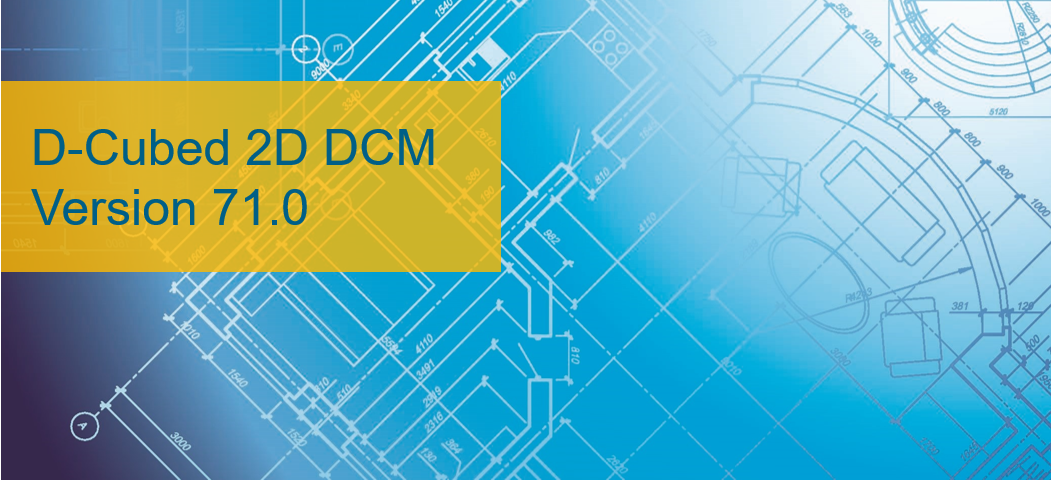D-Cubed 2D DCM Version 71.0

Key enhancements introduced in version 71.0 of D-Cubed 2D DCM (2D Dimensional Constraint Manager) are described below.
Curvature Continuity (G3) Constraint
2D DCM includes a wide range of features for creating splines and controlling their shape, including the ability to specify the geometric continuity when two splines meet. For example, splines can join with G1 (tangent direction) continuity or G2 (curvature) continuity. Version 71 includes the ability to impose a G3 (curvature continuity) constraint between splines or other curved geometry.
The figure below shows two splines meeting at their ends. The curvature (shown by the blue lines) is the same on both sides of the joins, but the right hand side shows the additional impact of the new constraint.

Two splines meeting with and without G3 continuity
Bi-Scalable Sets and Splines
Sets are collections of geometries which 2D DCM solves as if they are constrained relative to each other without requiring the use of individual dimensions and constraints. 2D DCM supports rigid sets where the shape and size are fully defined, scalable sets which have the freedom to scale uniformly, and uni-scalable sets which can scale in one direction, as if the set were being stretched. Constraints and dimensions can be applied between the set members and other geometries in order to position the sets, and to remove any remaining freedoms of the set.
Version 71 introduces a bi-scalable set. This has two internal freedoms which permit scaling in two perpendicular directions whilst maintaining the underlying shape. The scaling directions need not be aligned to the axes.
Splines can be controlled in a similar way, so it is possible to create rigid splines, scalable splines, uni-scalable splines and, from version 71, bi-scalable splines.

Bi-scalable spline, showing scaling in different direction
About D-Cubed 2D DCM D-Cubed 2D DCM (2D Dimensional Constraint Manager) is widely acknowledged as the leading 2D geometric constraint solver. In addition to driving the sketcher in many CAD products, 2D DCM is used in CAM, CAE and other geometry-based applications.